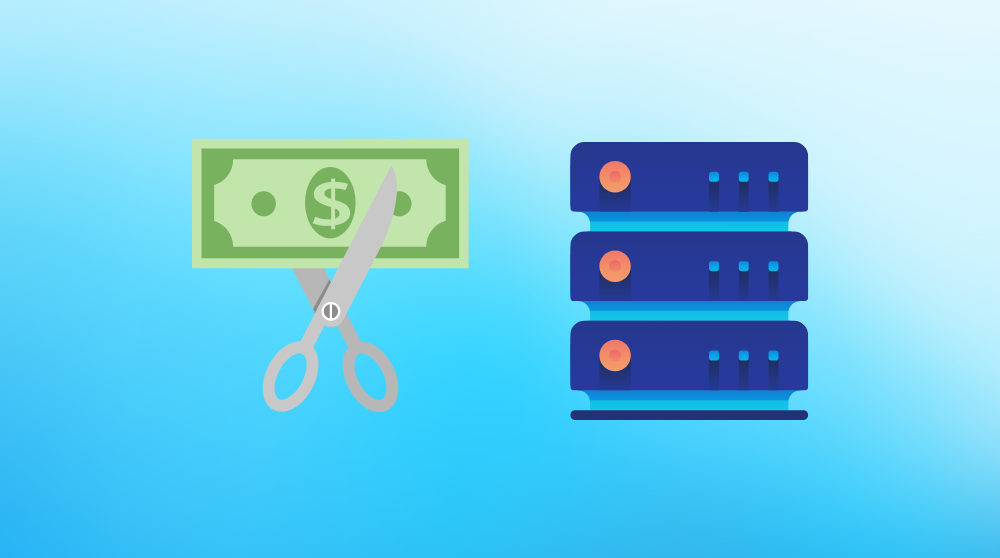
Website Owner Mistakes
How Choosing a Cheap Web Host Can Hurt You


How important is a good web host? Is cheap hosting still good enough? We'll look at why website owners often make the mistake of skimping on hosting so they can save a few bucks. If it doesn't cost you money, it may cost you in visitors.
Everyone wants a successful website, but getting one doesn’t happen by accident. One has to be careful to make the right decisions, even from the very beginning. Otherwise, those poor choices will come back to haunt you. In Website Owner Mistakes #1, we discussed the pitfalls of WordPress templates. For our second installment in this series, we're going to discuss another important topic - choosing a hosting provider. If you don’t have to choose your host, for example, you use a platform like Squarespace, Wix, or Webflow, then you can skip this section. Your site is still hosted, but all the work has been done for you and you won’t get to change it - EVER! BWAHAHAHA!
A web host is where your site “lives” or is “hosted” online. You can imagine a host like a property manager. They also own the “apartment” where your site lives. Just like an apartment complex, a good or bad property/manager can make or break your living experience.
Now, you can always choose a web host and then change it later, but admittedly, changing it later is a bit of a hassle, and hosting breakups can be awkward - “It’s not you, it’s me. Okay. It is you, but it’s me too. Okay. It is mostly just you.”
Hosting is an important part of a website because it stores ALL of your data on a real-life computer somewhere in the world and makes it available for visitors on the internet. Some hosting computers (like banking servers) are hiding deep in the earth in case something scary happens. As I mentioned, hosting plays a large part in making sure that everyone can arrive at your site’s address and access your awesome stuff. Unfortunately, it’s also a bottleneck for your content.
You can think of a host as kind of like a pipeline - since hosting is based on actual computer power, every host can only handle so much load. Another name for a hosting computer is a “server,” and it’s aptly named. If the pipeline (or serving capacity) is too small, your content won’t make it to your audience fast enough, and this will result in people leaving your site too early. The more demanding your content, the more powerful your server should be. Ecommerce sites and those that utilize video need super fast servers. Maybe you don’t have demanding content, but you have a lot of visitors. That’s a good problem to have! But the more visitors you have, the more powerful your server should be since it has to “serve” the same information to more people (think lightweight but lots of reps).
You can think of a host as kind of like a pipeline - since hosting is based on actual computer power, every host can only handle so much load. Another name for a hosting computer is a “server,” and it’s aptly named. If the pipeline (or serving capacity) is too small, your content won’t make it to your audience fast enough, and this will result in people leaving your site too early.

The more demanding your content, the more powerful your server should be. Ecommerce sites and those that utilize video need super fast servers. Maybe you don’t have demanding content, but you have a lot of visitors. That’s a good problem to have! But the more visitors you have, the more powerful your server should be since it has to “serve” the same information to more people (think lightweight but lots of reps).
Cheap hosting (usually known as “shared hosting”) is undeniably appealing, but you might be “paying” more in the end. Shared hosting takes longer to upload files to the server and creates a slower download experience for your users as well. To use our apartment analogy, shared hosting means you have roomies, and if they all want to use the microwave at the same time you have a problem.
Dedicated hosting (the opposite of shared hosting) means you get the apartment all to yourself, and you only have to worry about your burrito causing a backup. Such luxury also comes with a premium price - though we have a hosting secret we’re willing to share. Google doesn’t like slow sites either, and they will rank your site lower if it’s too slow - some say it’s more of a tiebreaker, but I wouldn’t test those waters. Make sure your site is fast enough - usually under a 3-second load time. However, what matters isn’t the number of seconds, but the impression. Does your site “appear” to load quickly - meaning are you loading all the good stuff at the top first and the less important stuff later? Congratulations if it is, Google usually recognizes that too. Yeah, they’re pretty smart.
We’ve got more mistakes to cover, so make sure you follow us on our channels if you want to get more of this series. Want to know which host we use for all of our clients? Subscribe to our newsletter, and we’ll tell you. Hey, we did say it was a secret!